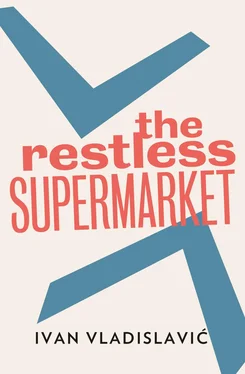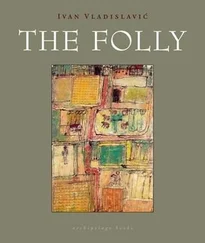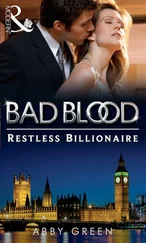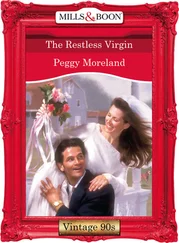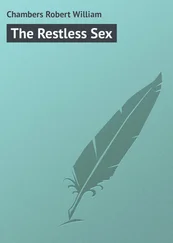Valda-ree, valda-raa …
At least Munnery, thanks to his stubborn nature and particular expertise, was in his proper place, where he had always been, in a chintzy little bungalow on a hill overlooking Alibia — although everything else in his vicinity, the efforts of the Society notwithstanding, had changed. Or rather, he had been there the last time anyone looked. Please God, Fluxman said to himself, let him be home. And he marched on, resignedly jaunty.
The walking stick had been a gift from the same Munnery. It had appeared on the breakfast table one morning a few months back, where the spoon was supposed to be, along with a catalogue for camping gear. He should have deleted it immediately, but there was a note attached, in the hand he knew so well: ‘This small gift is a token of your colleagues’ esteem. I implore you, do not turn your back on us. Alibia needs you.’ Fluxman did not approve of such fakery. But he kept the stick. It was pointedly wrought in the shape of a pencil, and now the rubber knob and brass ferrule felt in his fist like a reminder of his civic responsibilities. This awareness lifted his spirits.
Valda-ree, valda-ra-ha-ha-ha-ha-ha …
A bandit crashed out of the undergrowth. A thickset man in a bottle-green suit, tattered at turn-up and cuff, muddied at elbow and knee, shoes scuffed to rawhide, belly wobbling between the ripped tails of his shirt. He burst from between the trees and bore down on Fluxman like some animate guy escaped from the bonfire, grass sticking out of his collar and cuffs, greasy hair standing on end. Close kin to the monstrous bobber from the lake. Fluxman fell back, brandishing the alpenstock like a club. To his surprise, the creature stumbled to a halt and raised its own hands in surrender. A bloody head, as featureless as a turnip, covered with purplish bruises and stiff bristles, raw feet, and open hands, panting for air. In one palm, an ear was turned to the wind, in another, a mouth opened and closed like an anemone, trying to form words. ‘Police,’ it said, ‘police.’
Fluxman was skilled in the art of lip-reading and he understood perfectly, but he was in no mood to be manipulated. ‘Lay a hand on me,’ he cried, ‘and I shan’t be responsible for what I do to you.’
‘Thanks for asking, can’t complain.’
‘What do you want? Come on, spit it out.’
‘I’m the scum of the earth, master, but I’ve also got to live. I just need something to eat.’ The mouth in the palm opened wide in anticipation.
‘You disgusting thing!’ Fluxman waggled the stick threateningly. ‘Be gone, before I delete you.’
‘Or a job, master. I can carry the master’s bag.’
‘If I required the services of a porter …’ Even as he spoke, Fluxman felt the weight of the rucksack dragging at his shoulders. What had the rascal called him? Master.
‘Some change, then?’
‘I have nothing for you. Absolutely nothing.’
The sound of Fluxman’s voice had given the creature new bearings, and it lunged forward with both hands conversing wildly. Fluxman leapt lithely aside. The creature might well have caught hold of him, but in its rush, it got one of its blistered feet jammed in a cooking pot hidden in the grass. Going in circles, hopping and skipping in an effort to wrench off the pot, it reeled away among the trees. ‘Ciao for now!’ it called out as it went. ‘Pleased to meet you!’
Fluxman backed cautiously away, until he felt flagstones beneath his heels. Then he turned and ran, while the monster mumbled in the undergrowth behind him, palms chawing and champing, ranting to itself. He was in an alley, rushing headlong through a jumble of angled shadows, and he let its twists and turns determine his course, breaking always towards the light, to where the darkness was less impenetrable, slashing with his stick when the gloom thickened. Broken things crunched underfoot, as if the madman’s ravings had washed up here — chicken gristle and statuary, pieces of English, A-frames and I-beams, knick-knacks for the bar and doodads for the gym, dining-room suites, instant dinners, poems. A broken gramophone fell with a crash. Then the shadows were greyer, and the clutter thinner, and there was light ahead. A rectangle of sunshine traversed by people and cars.
Fluxman paused on the brink of the mundane to gather himself. He scraped the wreckage off the soles of his boots, mopped the sweat from his face and caught his breath. Then he walked to the mouth of the alley, where it gave onto the avenue, and glanced casually about as if he had just stepped out of his own front door. A broad boulevard with plane trees and pavement cafés, gleaming shopfronts full of mohair jerseys, potted meats and cans of petits pois, lamp-posts in the shape of lighthouses, benches in bus shelters like scalloped band-shells. Everything was running along so smoothly, so perfectly punctuated by parking meters and kiosks, so elegantly phrased into blocks and squares and loading zones, so idiomatically proper, that tears started to his eyes. Could this really be the Avenue of the Revolution? He looked around for a street sign. Nothing. What was it doing in these quarters? Must be a recent arrival.
He drank it all in: the clean-swept gutters, the fashionable throngs, the polished sedans. Everything seemed to be in order. Normal, well-proportioned faces met his gaze, eyes the recommended distance apart, brows smooth, noses straight, lips finely moulded, ears in pairs, perfect for supporting spectacles. Although he was not dressed for decent society, Fluxman tucked the stick under his arm, and falling in with the strollers, allowed himself to be carried along, breathing in the wholesome fragrances of baked goods and scrubbed bodies, recovering his composure.
In these troubled times, there was no activity more fraught with danger than wandering aimlessly in the streets. Something was certain to happen, and aimlessness only made it more likely that it would be unpleasant. Mindful of this fact, Fluxman sat down at a table under the canopy at Al Fresco’s. A waiter came.
‘Espresso, please. Make it a double.’
It was so long since he had sat at a café, and it felt so comfortingly familiar, that he was reminded at once of his old colleagues and the meetings of the Society. Displays of sentiment always made him uncomfortable, but a lump came to his throat as he looked about him and remembered the Alibia of yesteryear. A corn-roaster on the street corner stoked her charcoal brazier and a cloud of bitter-sweet smoke blew over him.
*
The Proofreaders’ Society of Alibia was as old as the city itself. In every age, the Members of the Society had gone quietly about their business, maintaining order without making a fuss. This modest dedication found expression in the items displayed upon their escutcheon: a blue pencil, a dancing-master’s shoe, a cobbler’s nail (the emblem of St Cloud) and the freckled bloom of the tiger lily.
In former times, the Society had conducted its affairs in secret and jealously guarded the identities of its Members. But over the years, as the principles and practices of government changed, it came to exist more openly in the public eye. The modern Members no longer found it necessary to employ pen-names and passwords, and willingly submitted themselves to scrutiny, in accordance with contemporary requirements. Nevertheless, they wished to maintain the proper proofreaderly reserve. To kill both birds with one stone, they made a custom of holding their formal meetings at a private table in a public venue. In the years when Fluxman was Master, these gatherings took place bimonthly in a cubicle at the Café Europa. Though their purpose was to enable the Members to clarify questions of craft, they served equally to cement the bonds of friendship.
This was the era of Munnery and Wiederkehr, of Levitas and Banes, sharp-eyed and open-hearted men, and a meeting seldom failed to instruct or inspire. Someone might have struck an insoluble problem in the course of his work, a grammatical tangle that could not be undone, or a usage that had evaded the reference books. Someone else might have come across a peculiarity of spelling or spacing, or a rare typographical error. Banes, who loved legal documents, sometimes brought a questionable interpretation for discussion, a judgement that hinged on a misplaced comma or an ill-timed hyphen. Figg, the Treasurer, always looking for a penny to pinch, would demonstrate new techniques for extending the life of a pencil stub or a pink eraser. In the late hours, when the official business had been dealt with soberly, small glasses of sherry, and the thought that ordinary citizens were sleeping easily because good order was in the hands of responsible men, sweetened the camaraderie that bound them all to the professional cause.
Читать дальше
